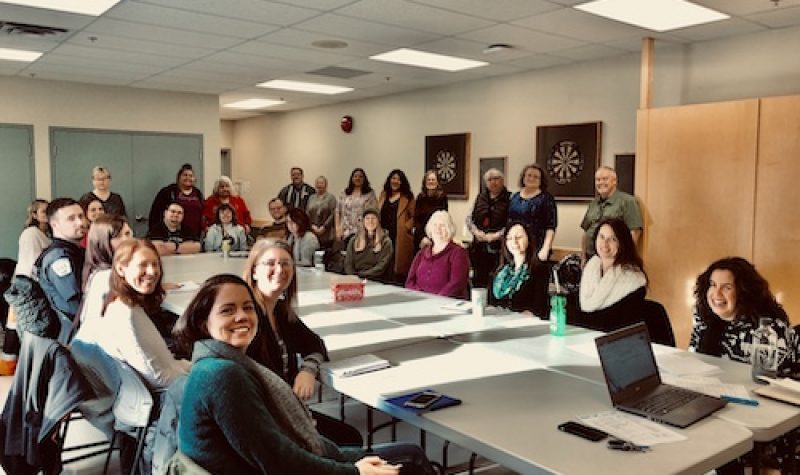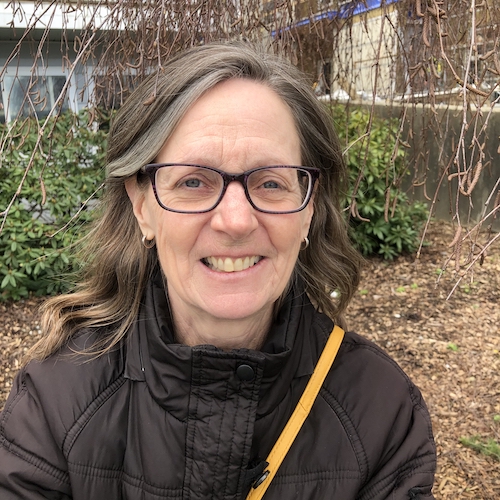By Roy L Hales
Summer is here, and with it an increase in the number of homeless people in our communities. According to Sue Moen , the Salvation Army's representative in the Campbell River and District Coalition to End Homelessness , this problem goes back about forty years - to when the federal government stopped subsidizing affordable housing. In the wake of the COVID pandemic , many Canadians have come to the realization that issues like this are community problems and we all need to seek solutions. In this morning's interview, Sue Moen talks about homelessness in our area.
BC Housing's Definition of Homelessness
“Homeless, according to the definition used by BC Housing, includes people who are precariously housed, or couch surfing, or aren't paying rent directly to a landlord. They may be sharing a room, but their name isn't on the rental agreement. They don't know if they'll have housing for the next thirty days… Also, there are a lot of people who are living in vehicles, RVs, and some even in campsites, ”said Moen.
“If they are off the beaten track and do not connect with services, they sometimes do even consider themselves homeless.”
Describe A Typical Homeless Person
“Describe a typical homeless person?” I asked.
“There isn't typical. People become homeless for every reason that there is a person experiencing homelessness. It could be fleeing violence, family break-down, fire, flood or an expected loss of employment, ”said Moen.
“It could be something like a WorkSafeBC claim. Someone is injured on the job. They don't have savings. They might get medical EI while they wait for their WorkSafe claim. It can take months or years for that to come through and they run out of money because EI, or Income assistance, is not enough to pay rent and feed yourself. ”
Women fleeing violence often end up couch surfing.
“They may be able to safely flee violence, but if there isn't an opening for them at a shelter, they will often end up with family or friends in very precarious situations. There could be overcrowding; they don't know how long the housing will last etc, ”said Moen.
She went on to mention people who:
- rent resort cabins, motel rooms or trailers during the winter and are evicted from their homes during the summer months to make way for vacation rentals.
- or thought they had arranged for housing, but it did not work out for some reason.
- or struggle with mental health issues, or all those subsequent traumas from childhood
- or are struggling with addictions. (From her experience: this tends to follow on the heels of homelessness, rather than cause it.)
- or are not able to hold on to their ID
Some recent studies, the most recent out of Toronto, indicated that the vast majority of people experiencing homelessness…. had a head injury. So there may be resultant behavioral problems, physical disabilities, coping skills etc. All of those things associated with a head injury many affect people's ability to find and sustain housing, ”said Moen.
She added, “Many of our chronic homeless people have gone through years of trauma - being housed; not being housed - and then when they are experiencing homelessness it is that much harder to connect them to services. ”
Our Area's Homeless Population
Cortes and Quadra Islands both have homeless populations. Moen is aware “one group, possibly two, off the beaten track on Quadra,” but does not have hard data for either island.
There were 81 homeless people in Campbell River a couple of years ago , but this year's count was postponed because of the COVID crises.
“We know that's an underrepresentation because it is difficult to connect with all those people,” said Moen.
Lack Of Affordable Housing
“Are we talking about people who wouldn't be homeless if they could find a place to stay?” I asked.
“Absolutely. The biggest barrier is lack of housing and beyond that it is a lack of affordable housing. Campbell River has the second lowest vacancy rate in the province, ”responded Moen.
According to the most recent figures from the Canada Mortgage and Housing Corporation , Campbell River's vacancy rate has fallen from 2.9% in 2015 to 0.4% last year. In British Columbia, only Squamish (0.3%) is worse.
“Even people who are fully employed, with good paying jobs, have difficulty. Employers complain that they will hire people, but those people can't find a place to live. So you have that pressure on the existing housing stock, which raises prices and leaves a whole lot of people out of luck. ”
Tell Me Some Success Stories
“Can you tell me some success stories?” I asked.
“Absolutely, there are always success stories, but I don't get to define success. The people whose life it is, they are the ones who decide what is successful for them. Over the years I have seen many many people successfully housed over a long term. I have seen many people obtain the specific type of support for the treatment that they want and need. ”
For someone who is camping: it may be enough to have a shower every day, have people who look after them and people they look after. Others define success as living in a one room apartment.
“Are there people who have been chronically homeless for years? Yes, there are. Those of us who define success as always having a roof over our heads, our heart's break for those people every single day - but there is always hope for them to figure out what they want and how to get there. Some people's journey just takes longer than others. ”
The Coalition to End Homelessness
The Campbell River and District Coalition to End Homelessness is working to find housing for everyone who wants it.
'We also know that is a long way off. So across the board, the coalition and our member agencies, apply a harm reduction principle. It's not just about drug and alcohol use, harm reduction is also making sure people get enough food, emotional support and a tent or sleeping bag - if that is the situation they are in today, ”said Moen.
New Affordable Housing
The City of Campbell River and province of British Columbia are building a new 40 unit affordable housing apartment for women and their children. It will be managed by the Campbell River and North Island Transition Society.
BC Housing purchased the former Rose Bowl Restaurant , in Campbell river, to be used as a 20-bed transitional house, with shower and toilet facilities.
“People are being housed. It is a little slower than we would have liked in Campbell River, but things are happening. We cheer and we are excited, but we know it is not enough and it is not fast enough, ”said Moen.



